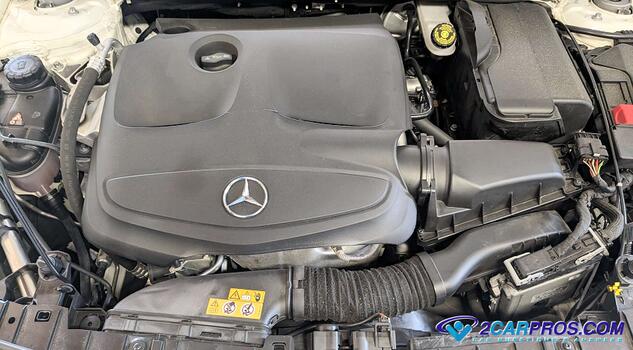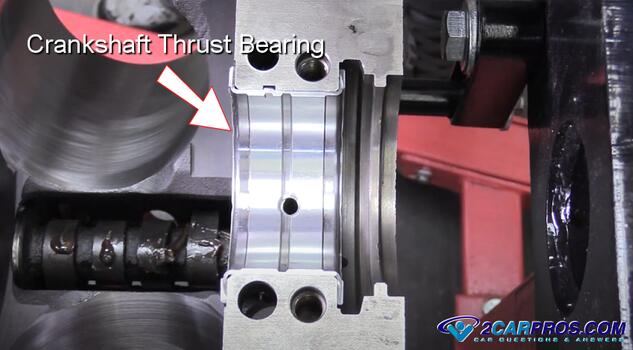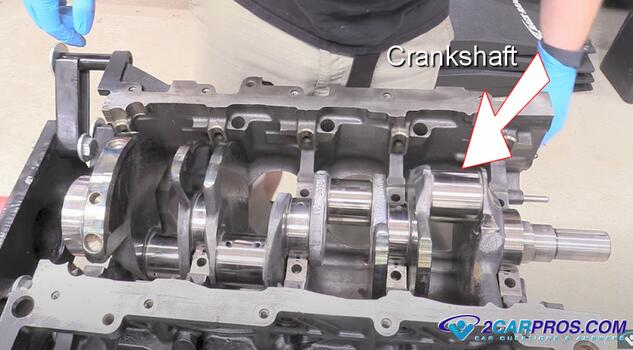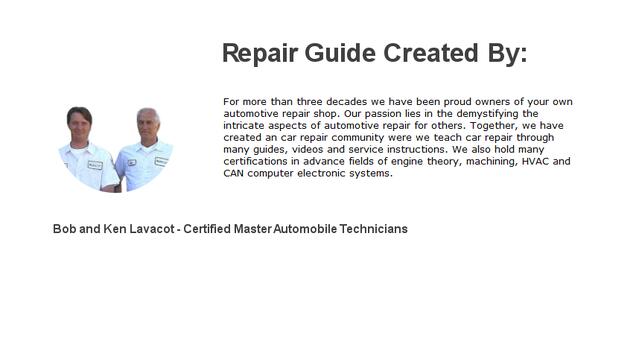An automotive engine knock, and engine "ping" are two different things so it can be a bit confusing, here is an explanation to help avoid confusion when reading this guide.
- Engine Ping - A "pinging" noise that can be described as "knocking" present only when the engine is under load or accelerating.
- Engine Knock - A mechanical sound that is present anytime the engine is running.
The confusion is obvious, sorry about that, I didn't make the rules :0)
Pinging or Knocking While Accelerating (Detonation)
Imagine driving along and you try to accelerate, then you hear a pinging or knocking sound that increases as you press the gas pedal, or if you are towing a trailer and approach an incline and hear the noise. This is because the temperatures inside the combustion chamber are too high which can be due to these factors:
- Not enough Octane in the fuel (need to use premium gas).
- Engine "knock sensor" is not working correctly - This can trigger a check engine light, scan for codes to confirm the sensor has failed.
- The engine is overheating - Check the temperature gauge or warning light and turn the engine off until the overheating has been repaired.
- Excessive carbon build up inside the combustion chamber - De-carbonization needs to be performed at a repair shop.
- Over advanced ignition timing (older cars only) - Using a timing light to adjust, and retard the ignition timing.
Mechanical Knocking
A mechanical knocking sound will be present most of the time and is related to bottom-end engine components such as a piston, wrist pin, piston rod or crankshaft issues. This noise is different than engine ticking or clicking which is evident of upper end issues such as valve train lifter, valve spring, valve seat, camshaft follower or camshaft problems.
1. One of the most popular failures to cause engine knocking is a spun piston rod bearing, This can be due to normal engine wear (high mileage) or low oil pressure, dirty oil, low oil level, or overheating. In the following failures the engine will need to be disassembled and re-machined.
A piston can fracture and crack, affectively working in separate pieces which will cause a knocking sound when in operation, this must be repaired with a new piston.
A wrist pin is used to serve is a pivot while attaching the piston to the piston rod. These pins can seize not allowing the isolating motion of the piston while traveling inside the cylinder bore. When this happens a knocking noise will be produced as the piston is slapping (knocking) against the cylinder wall.
The crankshaft thrust bearing is used to retain the crankshaft in the center of the engine block while rotating. When this bearing degrades excessive clearance is obtained and the crankshaft will "wonder" back and forth inside the engine block while producing a knocking noise. This sound will not be as prominent as the aforementioned failures.
A cracked crankshaft, though rare, can fracture in half at a main or piston rod journal. This failure is difficult to detect without a complete engine teardown and will require a new or re-machined replacement crankshaft with new rod and main bearings.
Engine Knock Prevention
To prevent engine knocking, please the follow these tips:
- Use premium fuel with higher octane when towing or demanding top engine performance.
- Perform regular engine oil and filter changes.
- Use fuel additives periodically to clean the engine and fuel system.
- Ensure the cooling system is functioning correctly to avoid overheating.
Credits
This guide knowledge base was created by the 2CarPros Team, and by Ken Lavacot: Automobile repair shop owner and certified master automobile technician of over 30 years. If you have question or need help please ask one of our experts we are happy to help. Please visit our 2CarPros YouTube Channel.









